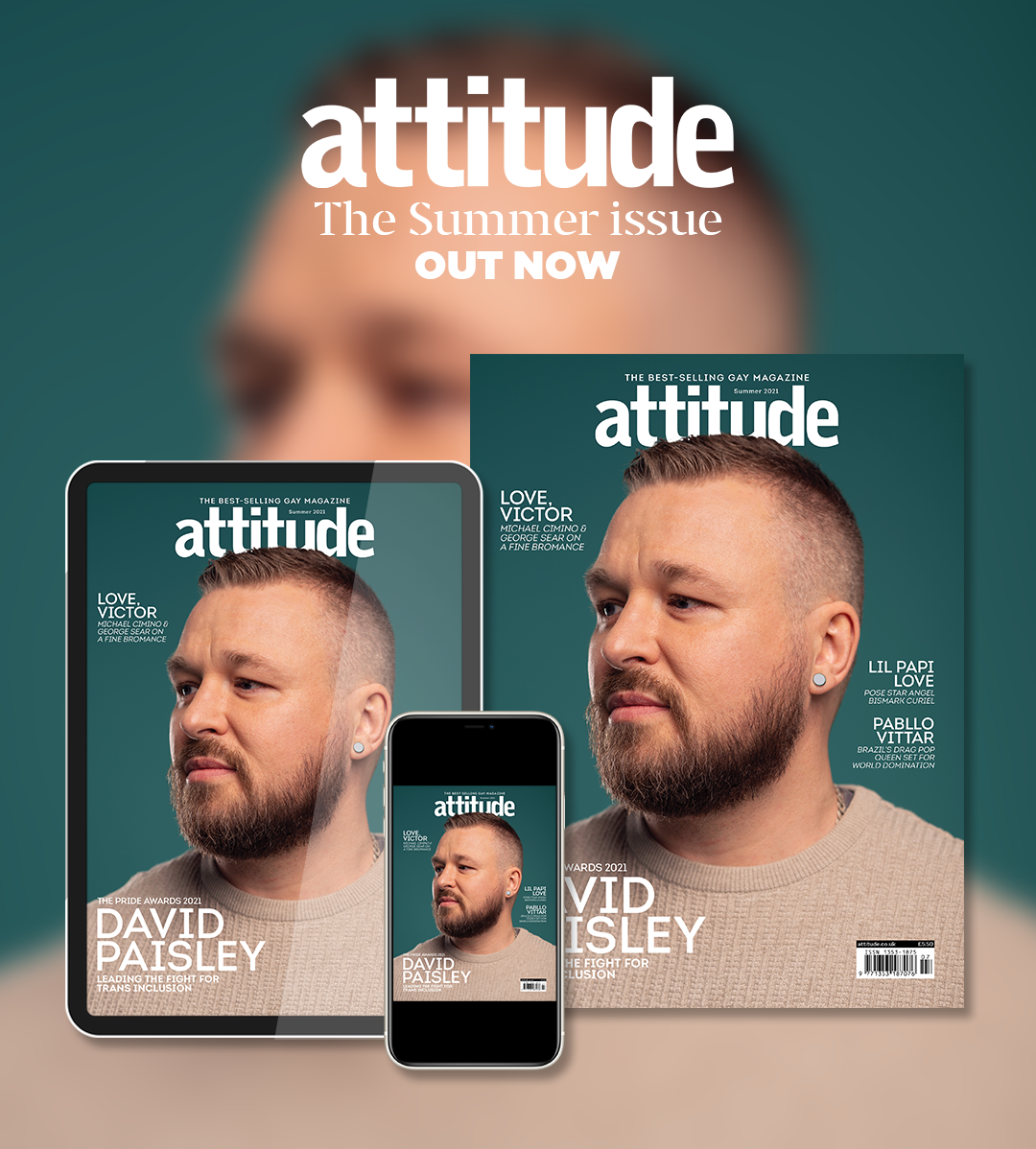David Paisley: The gay soap star taking a stand against the LGB Alliance
The former Holby City star is just one of the everyday LGBTQ heroes honoured at the Attitude Pride Awards, supported by Clifford Chance.
By Will Stroude
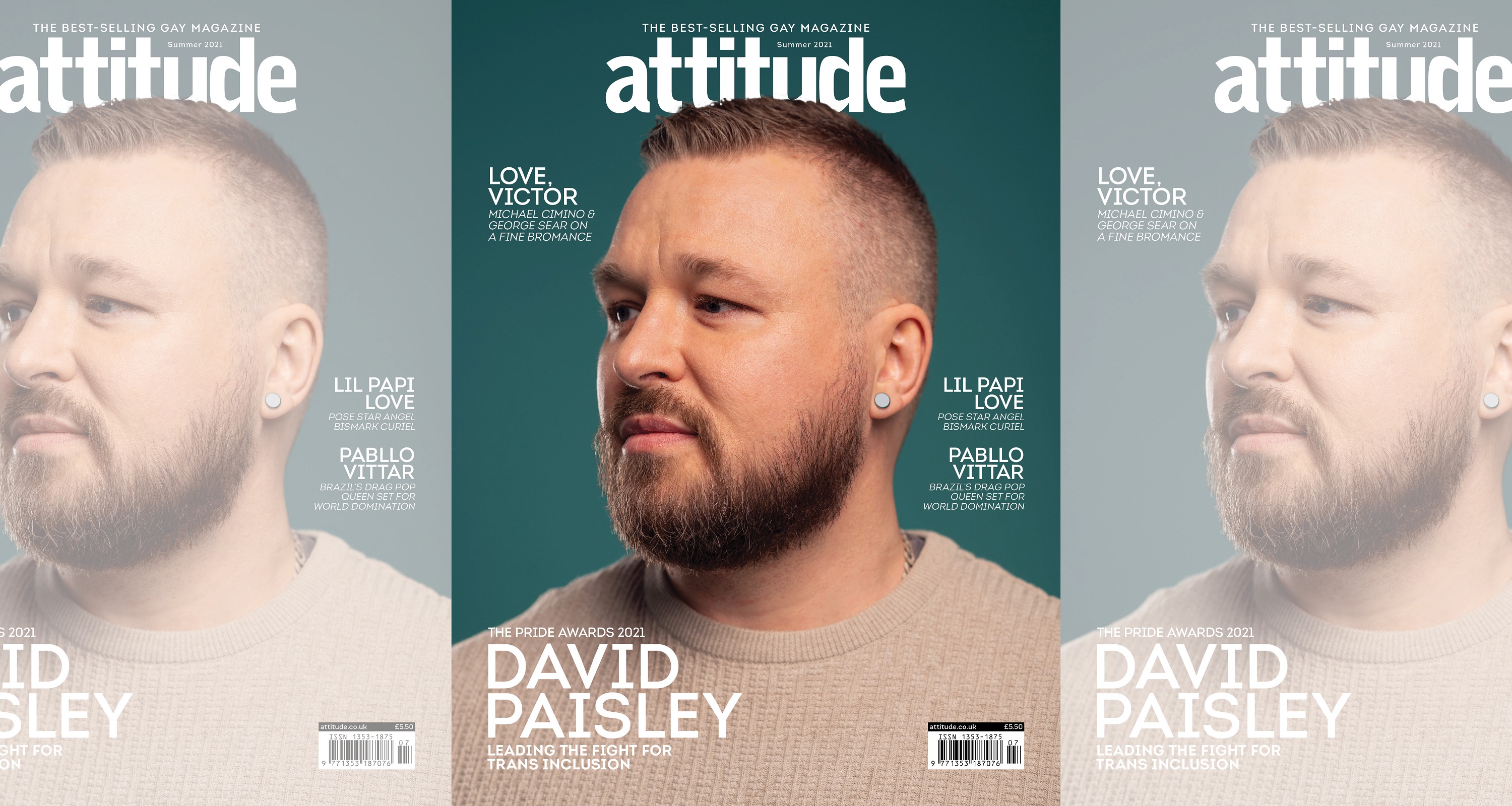
As community heroes and Attitude Pride Award recipients go, they don’t often come bolder and better than David Paisley, whose tireless campaigning against the trans-exclusionary agenda of the LGB Alliance has put him in the firing line of powerful and hostile forces.
Currently starring in BBC One Scotland’s soap opera River City, actor and activist David first made tabloid headlines in a Holby City/Casualty crossover episode way back in 2002 when he kissed his on-screen boyfriend, played by Lee Warburton.
“I never really worried about the impact on my career,” says David in the Attitude Summer issue, out now to download and to order globally.
“I think I just felt it was too important to be visible. A lot of the representation that was on TV was by actors that didn’t identify as LGBT, which is because there weren’t that many out gay actors at the time.
“Even now, I get messages from people saying, ‘That kiss in Casualty was the first time I realised that I was gay.’ For people to recognise something of themselves in the characters I’ve played, that’s a real privilege.”
More recently, David’s activism has built momentum on social media, where he has become a vocal critic of the LGB Alliance and its anti-trans stance.
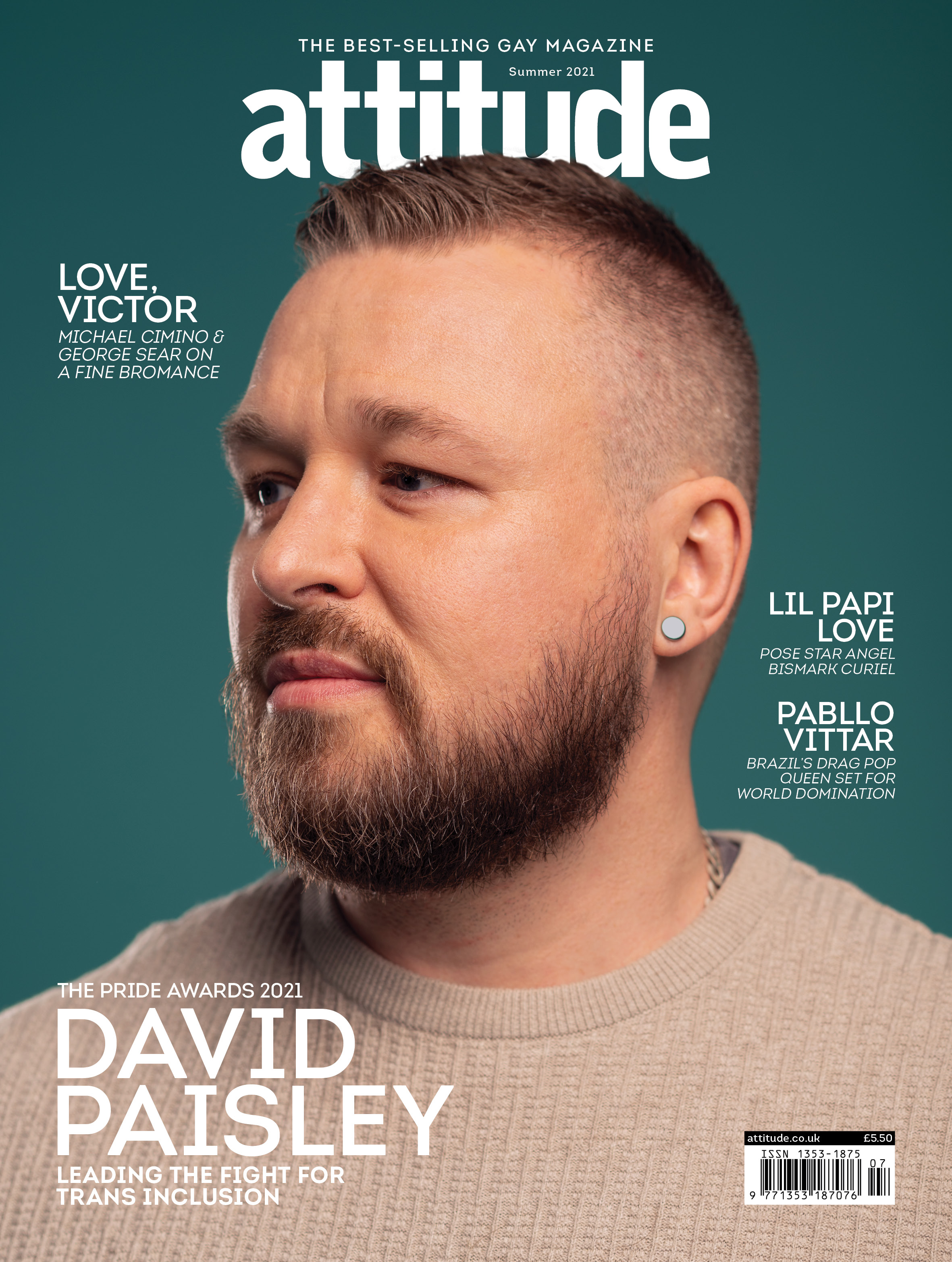
David Paisley is one of 10 everyday LGBTQ heroes honoured with an Attitude Pride Award in the Attitude Summer issue, out now to download and to order globally
Formed in 2019, the LGB Alliance on one hand claims to represent the needs of gay, lesbian and bisexual people, but with the other often campaigns to undermine the trans community’s fundamental rights.
“As someone who’s always been quite outspoken about equality and respecting diversity, I feel like it’s even more important for cisgendered gay men like myself to speak up in support of the trans community, given what they’re going through, the toxic environment and how challenging it must be to be a trans person in the UK right now,” says David.
“Organisations such as the LGB Alliance specifically exist to campaign against trans rights, and they say they’re doing so in my name, as a gay person, and they absolutely do not speak for me. They’re being given a platform to campaign against the rights of people from my community.
“It’s so important to speak out about the fact that we are one community, and we need to support one another, and allow us not to be divided, because that’s what they seek.”
The LGB Alliance’s track record is a shady one. The group actively campaign against a ban on conversion therapy, in particular, for the rights of religious organisations to continue offering the controversial practice, and have also campaigned against the Scottish Hate Crime Bill.
“It doesn’t make any sense that an organisation that says it’s about protecting the rights of lesbian, gay and bisexual people campaigns against moves to protect those people,” adds David.
He’s acutely aware that it’s also important to be the right kind of ally: “It’s vital that people who have a platform speak out in support of others. But never speak over. I think that’s another important thing, if you’re an ally to sections of the community, it’s really important to uplift other people, provide a platform for them to speak, share their experiences.
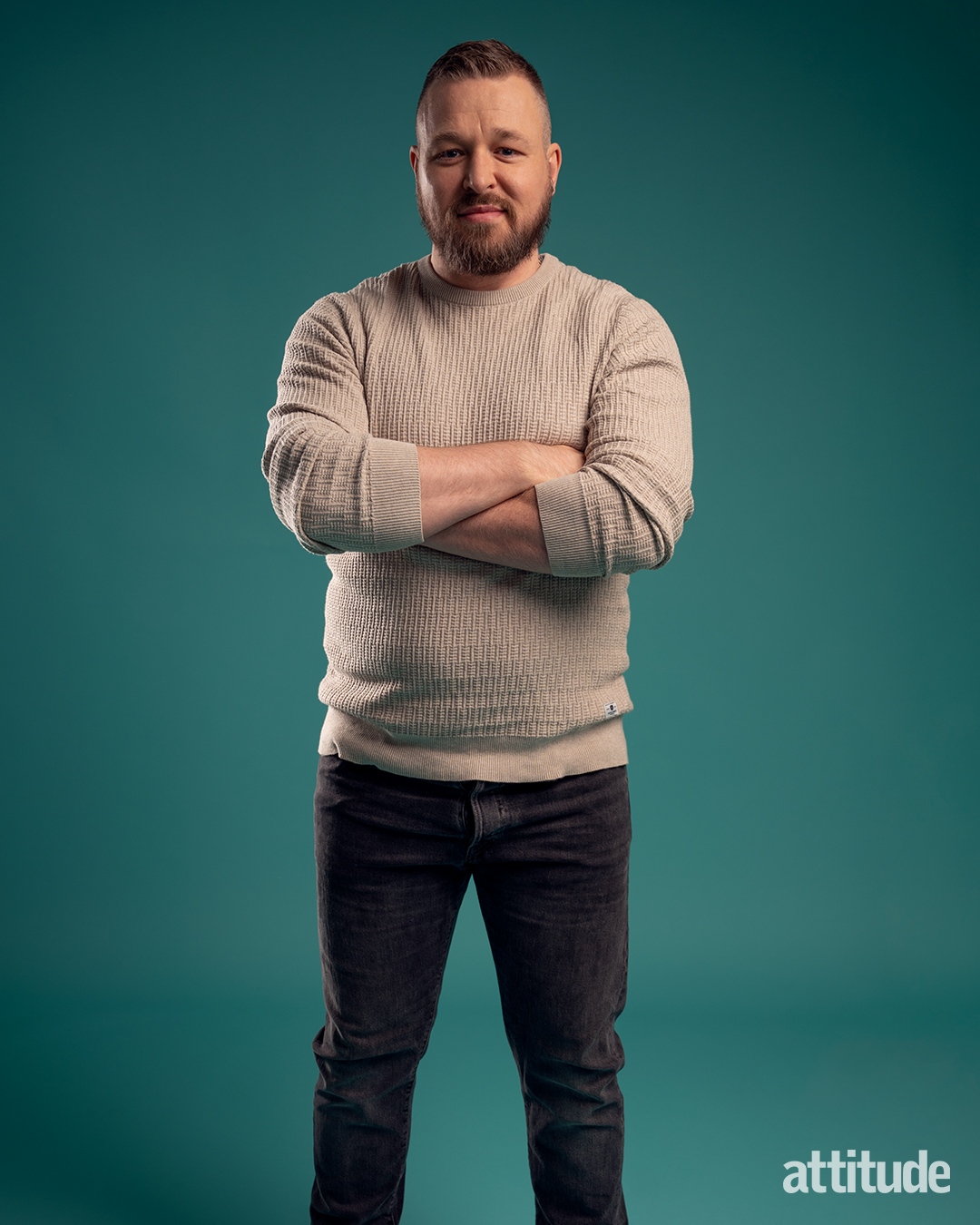
“I’m a white, cis gay man — they hold a lot of privilege in the gay community. They’re often listened to a lot more than other members of the community: women, ethnic minorities, trans people, nonbinary people. The focus should be on the less-often-heard members of the community.”
The division between the LGB and T letters of the expansive queer acronym is disheartening to see, and only serves to support the antiLGBTQ+ groups that seek to suppress us all. At the heart of it, David believes, is a lack of compassion for the struggles other people face.
“It’s about this real discomfort that people have with things that are different, things that they don’t understand,” he says. “I’ll never understand what it’s like to be a trans person or a non-binary person, but as a human being I have empathy, I can look at people’s experiences and listen.
“A lot of what we’re seeing is an echo of the homophobia that I experienced in the ’90s and early ’00s. A lot of the criticism that gets levelled at the trans community is very familiar: that they’re a danger to children, perverted, not to be trusted. It’s about creating a societal scapegoat. That was how we were treated, as gay men, that’s where my empathy is rooted.”
In May, the LGB Alliance was granted charitable status, a situation that caused uproar since most in the LGBTQ+ community perceive them as a hate group because of their anti-trans actions.
“They continually campaign online and speak about trans rights and gender issues. That’s why they exist,” says David.
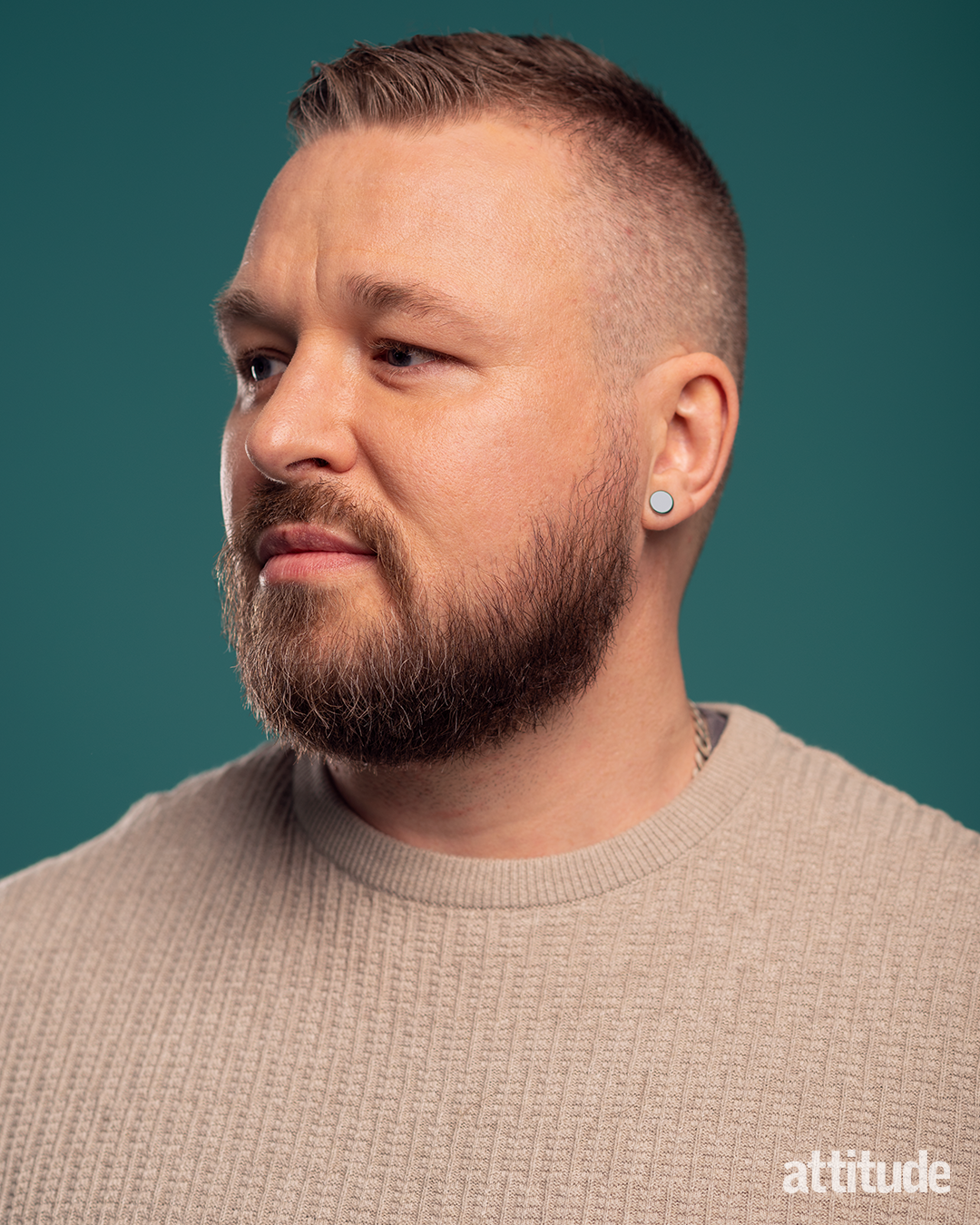
“So the idea that the Charity Commission would then legitimise their message by making them a registered charity is abhorrent. Their message is toxic and harmful, not just to the trans community, but to the entire community, because they’re also campaigning against the ban on conversion therapy. They don’t want it banned. They have campaigned against hate crime legislation. That has an impact on the entire LGBT community.”
David highlights how the group does no positive work to actually uplift LGB rights. There is even speculation that the group is associated with the American Christian right, and critics are curious about the funding that the LGB Alliance receives.
“Certainly, the things that they campaign on align very closely with Christian evangelical fundamentalists in America who are very wealthy,” David says, adding that the only thing that we can really do is point this out, and hope that people recognise that the group is harmful and toxic.
David also highlights how the LGB Alliance’s views seem to be infiltrating government policy.
“The LGBT Action Plan has been abandoned by the Conservative government. Seeing initiatives that were supposed to help LGBT people be abandoned, and commitments to equality and diversity being watered down should concern everyone. We’re seeing organisations like Stonewall having their funding threatened [by Equalities Minister Liz Truss], because there’s a campaign against them to have their funding cut.”
Aiming to provide a ray of light in a grey sky, David is part of a group that launched the campaign and fundraising platform LGBT+ Glitterati, and a not-for-profit, Together LGBTQ, to promote equality, diversity, cohesion and mutual support in the community.
Set up in reaction to a comment from a member of the LGB Alliance who exclaimed, “Oh, it’s the typical gay glitterati,” David decided to reclaim the insult and sells LGBT Glitteratibranded merchandise to fundraise for the Legal Defence Fund for Transgender Lives. “We’ve raised quite a lot of money. But largely what we want to do is just campaign in a positive way, to try and uplift other members of the community,” he says.
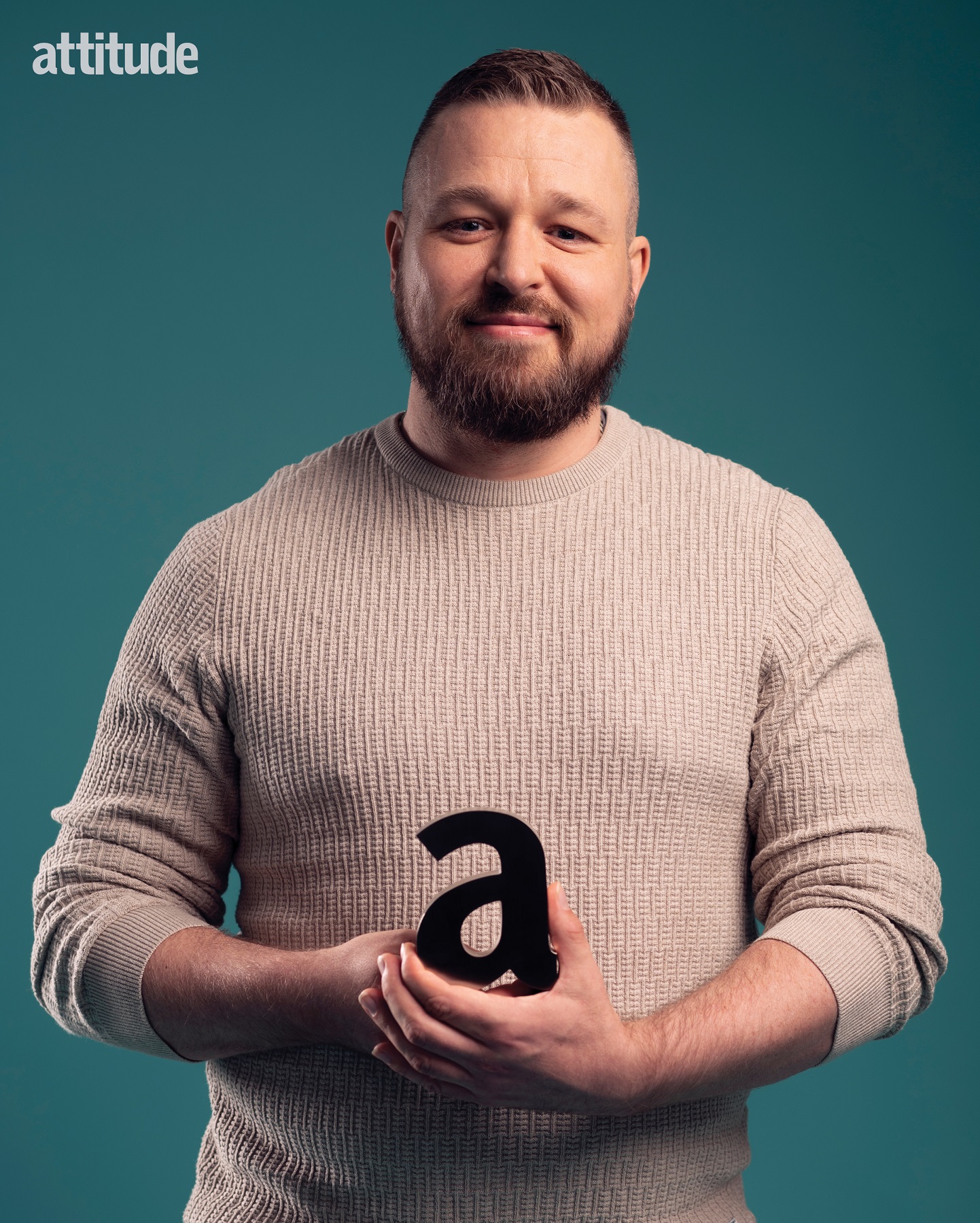
David’s public campaigning has led to him receiving torrents of online abuse that have left with severe anxiety, which worsened when someone sent him death threats.
“It had a really difficult impact on my mental health and wellbeing. I’ve also experienced harassment at my workplace. I had panic attacks. I couldn’t leave the house. I didn’t want to go back to work. I had to get help from the local mental health team, and try and get support.”
On the day of his Pride Awards shoot, David is shaken by news of an ongoing police action investigating the worst of these threats: “The online stuff was so toxic and harmful. There were accusations that I was a paedophile, and that I abused women and children. There were points where I considered taking my own life, I felt that the environment was so oppressive. My childhood was marked by abuse, so to see people freely accuse me of that kind of behaviour as if that’s an OK thing to say about a gay man, caused me a lot of emotional difficulty.”
He continues, “When you come from a minority community that is historically oppressed, online abuse has a real impact on your wellbeing, your sense of safety, your sense of acceptance within society. I got to a point where I felt unsafe going outside. I felt unsafe being myself, being an out, open, gay man. It brought back a lot of experiences from my youth, and I had to reach out and get proper mental health support.”
Despite the fact that his advocacy has had a personal impact, David believes it’s important to continue calling people out. “No matter how much it’s impacted me personally, I can’t imagine the stress and anxiety of being a trans person in the UK at the moment, given the public debate that’s had about their lives every day. As much as it might have had a personal impact on my wellbeing, it’s going
to be ten times more challenging for members of that community.
“I can step away from this debate. I can turn the internet off and not look at those comments. I can go under a duvet and forget. Trans people can’t step away from themselves and from society’s transphobia. They can’t, because that’s their life, that’s their day-to-day.”
As Pride Award recipients go, David Paisley is a worthy hero.
Meet all this year’s Attitude Pride Award winners in the Attitude Summer issue, out now.
Subscribe in print and get your first three issues for just £1 each, or digitally for just over £1.50 per issue.
